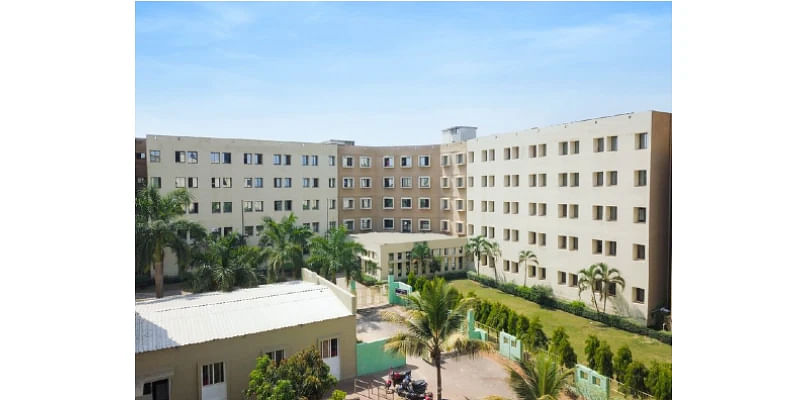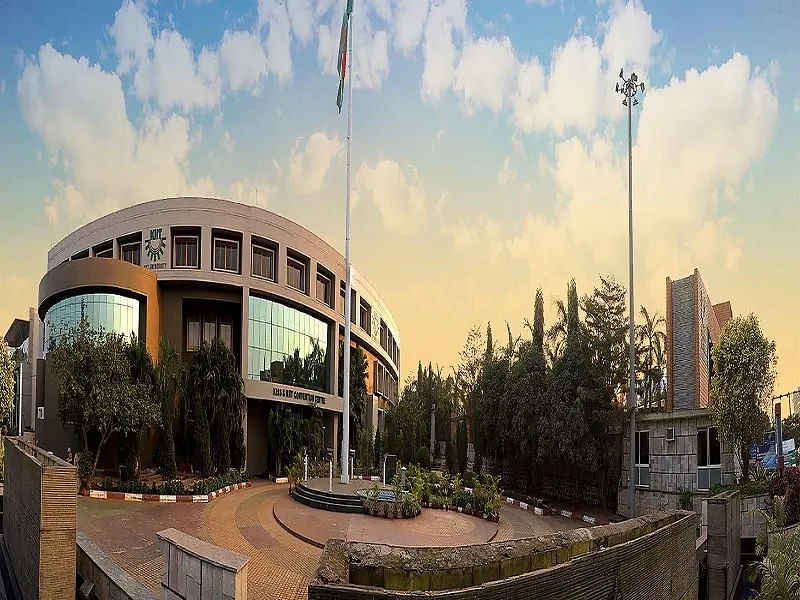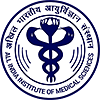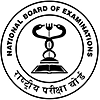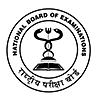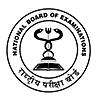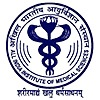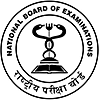MD Physiology

MD Physiology is a three-year postgraduate program that deals with the study of animal (including human) function at all levels, including cells, tissues, organ systems, and the entire body. Doctorate of Medicine in Physiology offers graduates the opportunity to set up a career in various areas of Academic Institutions, Government Organizations, Hospital Administration, Colleges and Universities, Clinics, Healthcare Services, Military Services, Research Centres, etc.
Table of Contents
- About MD Physiology
- Eligibility Criteria for MD Physiology
- How To Get Admission in MD Physiology?
- Popular Entrance Exams for MD Physiology
- Top 10 MD Physiology Colleges in India
- Fee Structure for MD Physiology
- Syllabus and Subjects for MD Physiology
- Why Choose MD Physiology?
- Scope For Higher Education
- Salary of an MD Physiology Postgraduates
- Career Options After MD Physiology
- Skills That Make students The Best MD Physiology Postgraduates
MD Physiology Course Details
| Degree | Doctorate |
| Full Form | Doctorate of Medicine in Physiology |
| Duration | 3 Years |
| Age | 27-35 |
| Minimum Percentage | 50% |
| Average Fees | ₹42K - 12 LPA |
| Similar Options of Study | MD (Pathology), MD (Physiology), MD (Pharmacology), MD (Biochemistry) etc |
| Average Salary | INR 10 LPA [Source: Glassdoor] |
| Employment Roles | Physiology Professor, Physiology Assistant Professor, Tutor / Demonstrator- Physiology, Anatomy & Physiology Trainer/Assistant Trainer |
| Top Recruiters | Private Hospitals, Public Hospitals |
About MD Physiology
During the Doctorate of Medicine in Physiology course, students are given a basic understanding of the theory of Physiology which is guided by functions and mechanisms of a living organism. The course falls under the umbrella of the MD course and therefore follows a similar course structure.
According to Wikipedia, “The MD Physiology is the postgraduate program in the Arts sector awarded by universities and conservatories. The course combines the study of Physiological living organisms’ function at all levels, including cells, tissues, organ systems, and the entire body. The overarching goal is to describe the basic mechanisms at work in a live creature, as well as how they interact.”
Also, Check: Steps to Become a Physiologist
Eligibility Criteria for MD Physiology
Doctorate of Medicine in Physiology admission is offered to only those students who meet the eligibility requirements. The candidates must have an MBBS or M.Sc degree with a minimum 50% aggregate score in the final examination and Biology, Chemistry, Physics, and Mathematics a core subject. The maximum age limit for this course is 35. The admission process can be either entrance exam-based or merit-based.
How To Get Admission in MD Physiology?
Students must ensure that they satisfy the eligibility criteria for MD Physiology in India. MD Physiology admission 2021 is done through entrance exam scores or on a merit basis. Admission procedures may vary across different MD Physiology universities in India. Mentioned below are the details of the admission process in general:
How to Apply?
MD Physiology course details and procedures for admission can be found on the college's official websites. To apply for the course, students must visit the official university admission portal and register for the entrance exam. After that fill the application form by providing the required details.
Selection Process
Admission is strictly offered to only those students who clear the Doctorate of Medicine in Physiology eligibility criteria. The list of shortlisted candidates can be availed through the college’s official website or will be informed via email regarding the result and the further admission process.
Popular Entrance Exams for MD Physiology
Admission to the MD Physiology course in India is mainly through entrance examinations. Entrance exams for MD Physiology India are usually conducted on the university level. The most common exams that most candidates apply to are as follows:
A Quick Glance at the MD Physiology Entrance Exams
Students must ensure that they satisfy the eligibility for the MD Physiology course to get admitted in the course. To clear the entrance exam, students should study the exam pattern and syllabus well before time. This will assist students in timely preparation for the entrance exams. Listed below is the general pattern for the entrance exams:
- The entrance exam has multiple sections that test different parts of a student's knowledge from Physiology, Biology, Surgery, General Medicine, Microbiology, Biochemistry, Pathology, Analytical Skills, Reasoning, General Aptitude, and General Knowledge, etc.
- The examination will be conducted through offline mode or online mode.
- The time duration to complete the paper is 3.5 hours.
- Paper consists of 200 multiple choice questions carrying 800 marks.
Top 10 MD Physiology Colleges in India
Various institutes offer MD Physiology courses. Students can opt for the MD Physiology best college depending upon their merit and specialization needed. Some of the MD Physiology top colleges are listed below:
|
Sl. No. |
Name of the Institute |
|
1 |
|
|
2 |
|
|
3 |
|
|
4 |
|
|
5 |
|
|
6 |
|
|
7 |
|
|
8 |
|
|
9 |
Jawaharlal Institute of Postgraduate Medical Education and Research |
|
10 |
Fee Structure for MD Physiology
MD Physiology fees range from INR 70,000 - 20 LPA. The fees may vary according to the college or university based on the type of institute, location, infrastructure, faculties, and facilities available. Below listed are the MD Physiology fees structure of some colleges:
|
Sl. No. |
Name of the Institute |
Average Annual Fees |
|
1 |
Adesh Institute of Medical Sciences and Research, Punjab |
INR 3 LPA |
|
2 |
AJ Institute of Medical Sciences and Research Center, Mangalore |
INR 6 LPA |
|
3 |
All India Institute of Medical Studies, Delhi |
INR 2 LPA |
|
4 |
Amrita School of Medicine, Kochi |
INR 27 LPA |
|
5 |
Armed Forces Medical College, Pune |
INR 1 LPA |
Syllabus and Subjects for MD Physiology
Doctorate of Medicine in Physiology is a three-year postgraduate course in Physiology specialization. MD Physiology course is a comprehensive study of the science of living organisms that prepares students to work in the medical field of Physiology and areas such as Academic Institutions, Government Organizations, Hospital Administration, Colleges and Universities, Clinics, Healthcare Services, Military Services, Research Centres, etc. The subjects related to this course vary according to specializations and the institutes. The syllabus includes theory papers and practical papers. The compulsory subjects include:
- General Physiology
- Anatomy
- Clinical Sciences related to Physiology
- Systemic Physiology including recent Advances
- Biophysics, Biochemistry & histology Related to systemic Physiology
Read More About MD Physiology Syllabus and Subjects
Why Choose MD Physiology?
Students often wonder about MD Physiology course details before choosing the course. Before deciding on a career, students come across queries like, "What is the MD Physiology course?" and "Why choose MD Physiology?”. To clearly understand answers to these questions, we have framed the following three pointers:
What is MD Physiology All About?
Doctorate of Medicine in Physiology is a postgraduate program that deals with the study of animal and human behaviour in Physiology. MD Physiology is a discipline of medical science of life is physiology. It is a discipline of biology whose goal is to comprehend the mechanisms of living things, from the behaviour of the entire body and the impact of the external environment.
What Does an MD Physiology Postgraduate Do?
The MD Physiology postgraduates can work as Professor, Demonstrator, Anatomy Trainer, Physiology Trainer, Lab Technician, Clinical Analyst, Trainee Medical Coder, Physiotherapist, Regulatory Affairs Manager, etc.
Anatomy Trainer: Anatomy Trainers are in charge of determining the chemical composition of anatomy substances. Their goal is to identify and comprehend the anatomical substance. An anatomy trainer would be involved in the drug development process in the pharmaceutical business.
Reasons Why MD Physiology Can Fetch Students a Rewarding Career?
Career prospects for MD Physiology greatly vary. It depends on the respective specialization and demand of the course. This course mainly focuses on the study of biological functions in living beings. This course also covers the fundamentals of aberrant function in human disease, as well as how to treat those diseases using translational research and novel technologies.
Career Scope and Options: An MD Physiology course provides a lot of job opportunities, aspirants who have completed the course can mainly start a career as a Professor, Demonstrator, Anatomy Trainer, Physiology Trainer, Lab Technician, Clinical Analyst, Trainee Medical Coder, Physiotherapist, Regulatory Affairs Manager, etc.
Read More About MD Physiology Jobs
Preparation Tips for MD Physiology
Some of the course preparation tips for the MD Physiology course are listed below:
Know The Syllabus And Exam Pattern: To prepare well for the entrance exams the candidates should be aware of the syllabus, exam pattern, and the research paper and books to equip the knowledge required.
Practice Question Papers: Practice solving previous years’ papers to understand the type of questions asked. It also helps to improve and prepare students for the actual exam.
Take Mock Tests: Solving as many mock tests can help students gain speed and accuracy.
Prepare Time Table: Finish preparation well in advance, to have enough time for revision of the content.
Scope For Higher Education
After completion of an MD Physiology course, the candidates can choose to take up jobs or can continue with their higher studies. An additional degree in the same field improves job opportunities. Obtaining higher education can help postgraduates learn more about the subject and enter the field of Physiology. Additionally, it can also help them increase their salary. Some higher education options are:
Salary of an MD Physiology Postgraduates
The average salary of an employee with a Doctorate of Medicine in Physiology is INR 3- 10 LPA (Source: Naukri) for freshers. The salaries and annual earnings depend on the specific companies they work for, the methods of practice, expertise, and other related aspects.
Read More About MD Physiology Salary
Career Options After MD Physiology
After completion of the course, the postgraduates can find jobs in areas like Academic Institutions, Government Organizations, Medical, Hospital Administration, Pathology, Biomedical, Pharmacy, Therapy, Research, etc. The postgraduates can even apply for the UPSC or JRF exam. Clearing these exams to make a career further in the medical sector. Some job roles offered to postgraduates are:
- Biochemist
- Biotechnology Industry Worker
- Dietician/Nutritionist
- Epidemiology
- Forensic Scientist
Skills That Make students The Best MD Physiology Postgraduates
Some students are passionate about studying the medical field in Physiology with deep knowledge about examining the biological functions, diseases, treatment, carrying forward the research in medical science and implementing it professionally in the future. MD Physiology course is wide-ranging and deep in the subjects it explores the different methods and advancements in the Medical Science field. Some required skills are:
- Communication Skills
- Technical Skills
- Analytical Skills
- Time Management
- Professionalism




